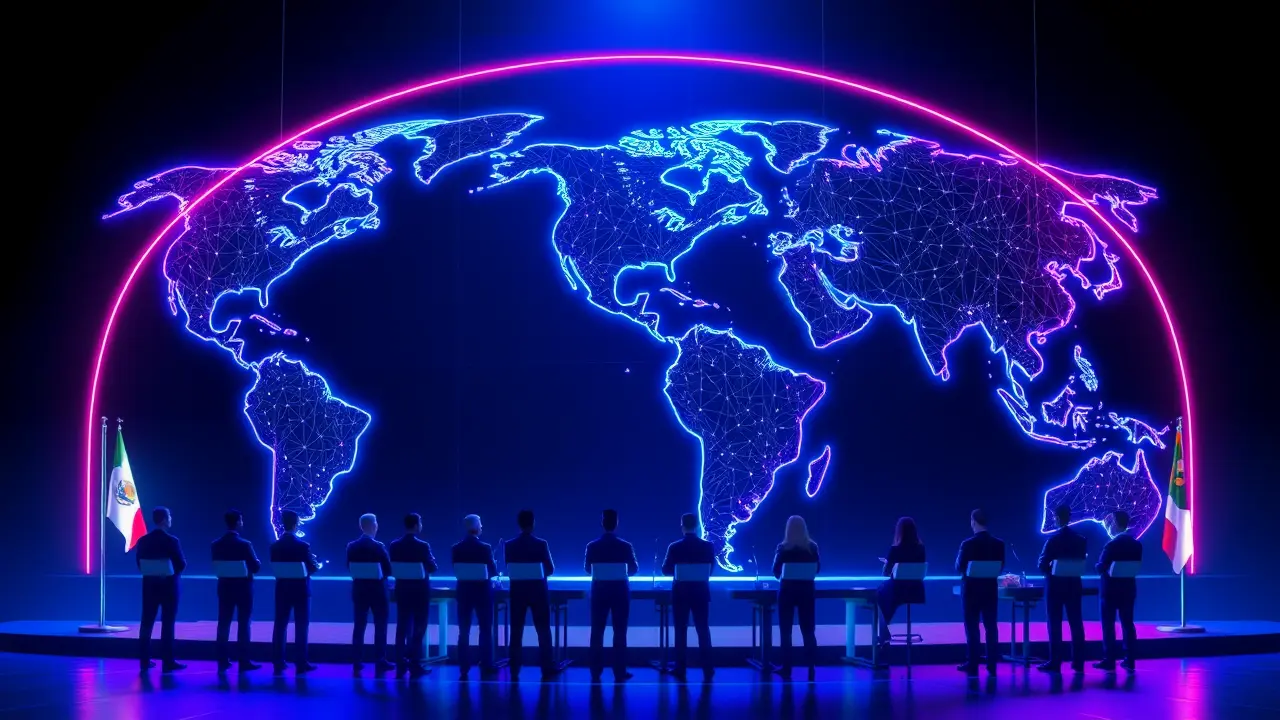
PoliticsdiplomacyMultilateral Summits
European and Latin American Nations Defy Trump at Summit
RO
Robert Hayes
4 hours ago7 min read1 comments
In a striking display of diplomatic defiance that recalls the grand coalitions of a bygone era, European and Latin American nations have collectively stiffened their spines against the mounting pressure from the United States during a pivotal summit. The gathering, which unfolded under the long shadow cast by the Trump administration's increasingly unilateralist and confrontational foreign policy, became an unexpected forum for a unified front.Delegates from capitals as diverse as Berlin, Paris, Madrid, and their counterparts from Brasília, Mexico City, and Buenos Aires, found common cause in their profound exception to the White House's stance on three foundational pillars of the modern international order: the sanctity of international law, the existential threat of climate change, and the principles of fair and free trade. This was not merely a procedural disagreement but a fundamental schism in worldview, reminiscent of the ideological divides that characterized the Cold War, though now with the roles and alliances intriguingly reconfigured.The Trump doctrine, with its emphasis on transactional nationalism and its skepticism of multilateral institutions like the United Nations and the World Trade Organization, has effectively driven these two historically distinct blocs into a strategic embrace. European leaders, long the standard-bearers of the post-war liberal order, are now navigating a world where their traditional transatlantic ally has abdicated that leadership, forcing them to seek new partnerships to uphold the Paris Agreement and defend the integrity of international tribunals.Simultaneously, Latin American nations, many grappling with internal political shifts and economic vulnerabilities, see in this alignment not just a rebuke of Washington but an opportunity to leverage their collective weight on the global stage, securing more favorable trade terms and support for sustainable development. The consequences of this realignment are profound, potentially reshaping global supply chains, redirecting investment flows, and creating a new axis of diplomatic influence that could counterbalance both American and Chinese power.Analysts suggest this summit may be remembered as a watershed moment, similar to the Bandung Conference of 1955, where a group of non-aligned nations first asserted their collective agency. The immediate fallout will likely be increased economic and diplomatic friction, with the U.S. potentially responding with further tariffs or aid reductions. However, the longer-term legacy could be the crystallization of a more multipolar world, one where middle powers, through concerted action, can indeed challenge the dictates of a superpower, a lesson not lost on observers in Beijing, Moscow, and other global capitals watching this unprecedented transatlantic rift widen into a chasm.
#featured
#diplomacy
#international relations
#Trump administration
#climate change
#trade
#sanctions
#European Union
#Latin America
Stay Informed. Act Smarter.
Get weekly highlights, major headlines, and expert insights — then put your knowledge to work in our live prediction markets.
Related News
© 2025 Outpoll Service LTD. All rights reserved.














